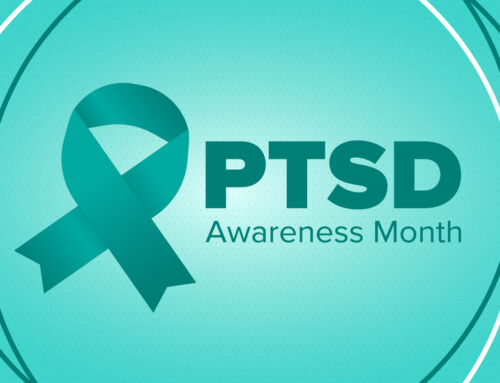High-Stress Occupations Can Lead To Substance Abuse
Teachers face enormous pressure and responsibilities in their classrooms each day, and many are underpaid and undervalued. In an effort to alleviate stress and cope with their mental health and pressures of their jobs, educators may turn to an illicit substance to manage the stress. More time than not, they begins to struggle with drug or alcohol abuse.
If you or a loved one is suffering from teaching-related stress or even addiction, it’s important to explore addiction treatment options for a happy and healthy life. In this article, we’ll discuss why teachers are vulnerable to addiction and abusing drugs and the resources and solutions they can turn to.
Did you know that if you are a teacher in the Tri-State area there is a beacon of light that awaits – one that will enable you to overcome addiction and get back on your feet? Greenbranch Recovery, located in Egg Harbor Township, NJ, offers outpatient addiction treatment designed to fit your situation and your schedule. Our professionally designed programs are specifically designed for professionals – like you or your loved one. Read on and reach out…
Are Teachers Vulnerable to Addiction?
Teachers and other professionals within the education industry are tasked with enormous pressures and responsibilities throughout their careers. They take on roles at work as scholars, caregivers and role models, and the cumulative stress from these roles can wear away at mental health over time. With factors like constant policy changes, never-ending stress and COVID-19, teachers might be more affected by substance abuse issues than ever.
It’s no surprise that approximately 5.5% of education industry workers suffer from substance abuse or addiction. Studies show that 93% of teachers in 2018 experienced high levels of stress, and this stress can put them at greater risk of heavy drinking or illicit drug abuse.
Are You a Teacher Struggling With Addiction?
Call us today or click here to verify your insurance. Your information will be kept confidential. We are here to answer your questions and help you get on the path to recovery.
Teachers and Addiction: Why You May Be More Affected Than Ever
A few factors contribute to mental health, substance abuse and addiction risk for teachers. Here are the top-5 factors Greenbranch Recovery sees contributing to teachers we have treated that tie to addiction:
1. Continual Policy Changes
In recent years, educational reform has rapidly changed curriculums, pay structures and other policies relating to the teaching profession. Many teachers feel these dramatic changes are an attack on the terms and conditions they agreed to when they joined the education industry. These constantly shifting dynamics can trigger additional stress for teachers as they struggle to keep up, potentially resulting in substance abuse.
2. Lack of Budget for You & Your Students
With so many classrooms underfunded, teachers sometimes must make up for the gaps in resources. About 94% of teachers spend their own money on classroom supplies without reimbursement. They’re often also responsible for many students in a single classroom, since schools may not have the budget to hire additional staff. Factor in long hours before and after class to prepare lessons and grade assignments and it’s obvious teachers deal with a massive workload relative to their pay.
3. The COVID-19 Pandemic (Before vs. After)
The COVID-19 pandemic compounded the regular stress teachers face. Studies show college and school staff experienced heightened levels of stress, anxiety and depression and suggest this may have been related to limited social support and the urgent need to adapt to distance education strategies. The rapid shift to distance education strained teachers’ knowledge and skills, as well as the boundaries between their private and professional lives.
In addition to the broad stress caused by the pandemic, shifting COVID-19 policies for both in-person and distance schools may cause enough stress that teachers eventually experience burnout. This stress can lead to increased substance abuse, which likewise means educators face increased risk for worse symptoms or health issues related to COVID-19 or other illnesses.
4. High Expectations & Media Pressures
Colleagues, parents and the media constantly hold teachers to high standards. Despite being undervalued and overworked, teachers are expected to behave with empathy, generosity and intellect. They’re also expected to behave appropriately even when not clocked in, whether posting on social media or out with friends.
Society tends to be unforgiving towards teachers, and this never-ending pressure to be a perfect role model to students not only creates additional stress but also reinforces stigmas against drug and alcohol abuse. As a result, most teachers may hide their stress and substance abuse out of fear of social and professional backlash and mistakenly believe their addiction and other mental health issues to be rooted in their own moral failing. This social isolation creates a cycle of stress and substance abuse, increasing addiction risk over time.
5. Consistent Sleeping Problems
Teachers must keep up with educational curriculums and regularly take their work home, working long past their eight classroom hours grading assignments and preparing lessons. When combined with work-related stress from various responsibilities and pressures, teachers often don’t get enough sleep. They may turn to sleeping medications but inadvertently misuse them and become addicted.
If sleep suffers, so too does cognitive and mental wellbeing. Over time, sleep deprivation may result in impaired judgment and increased risk of substance abuse and addiction.
Don’t go through the process of recovery alone. There are people who can help you with the struggle you’re facing. Get in touch with one today.
If you have coverage of any kind from a major insurance provider, your treatment is likely covered. We promise to keep your information confidential.
Family and Medical Leave Act for Teachers and Addiction and Substance Abuse Treatment
Remember that even the best teachers can be susceptible to addiction and may need drug rehab or other rehab treatments. Although your employer may be entitled to terminate you should you violate school policies, the Family and Medical Leave Act (FMLA) requires employers to allow employees in the education industry to take unpaid leave for up to 12 weeks for any medical reason. FMLA can be used for drug and alcohol addiction treatment, since addiction can greatly affect physical, mental and emotional health.
Verify that you’re covered for FMLA under your employer and meet FMLA eligibility requirements. You’ll then be required to request leave and comply with all standard procedures.
Although FMLA is unpaid leave, you may be able to offset the cost of treatment programs with your insurance. Check your insurance coverage to see what you’re able to claim.
Substance Abuse and Addiction Treatment for Teachers
 If you, your family members, or loved ones are among the 20 million American adults suffering from addiction, it may be time to seek support from an addiction treatment program for professionals. Greenbranch Recovery offers partial hospitalization programs to affected teachers as a step down from inpatient rehab treatment, allowing them to report to work without compromising on substance abuse treatment or mental health issues. Intensive and general outpatient programs also provide addiction treatment, support groups and counseling sessions to help manage addiction triggers and transition to your normal obligations and life. Dual diagnosis treatment is also available for individuals with certain co-occurring conditions.
If you, your family members, or loved ones are among the 20 million American adults suffering from addiction, it may be time to seek support from an addiction treatment program for professionals. Greenbranch Recovery offers partial hospitalization programs to affected teachers as a step down from inpatient rehab treatment, allowing them to report to work without compromising on substance abuse treatment or mental health issues. Intensive and general outpatient programs also provide addiction treatment, support groups and counseling sessions to help manage addiction triggers and transition to your normal obligations and life. Dual diagnosis treatment is also available for individuals with certain co-occurring conditions.
Drug and alcohol addiction doesn’t discriminate, and many professionals can be at greater risk of drug abuse due to high-pressure positions. Greenbranch Recovery rehabilitation programs and addiction treatment services consider that professionals may belong to organizations with strict policies and fear losing their job due to substance addiction treatment needs.
Greenbranch Recovery is here to help teachers manage their substance use disorder with privacy and customization, helping them prioritize their health and show up in the classroom as the best version of themselves. Go online or call to get started with Greenbranch Recovery.




